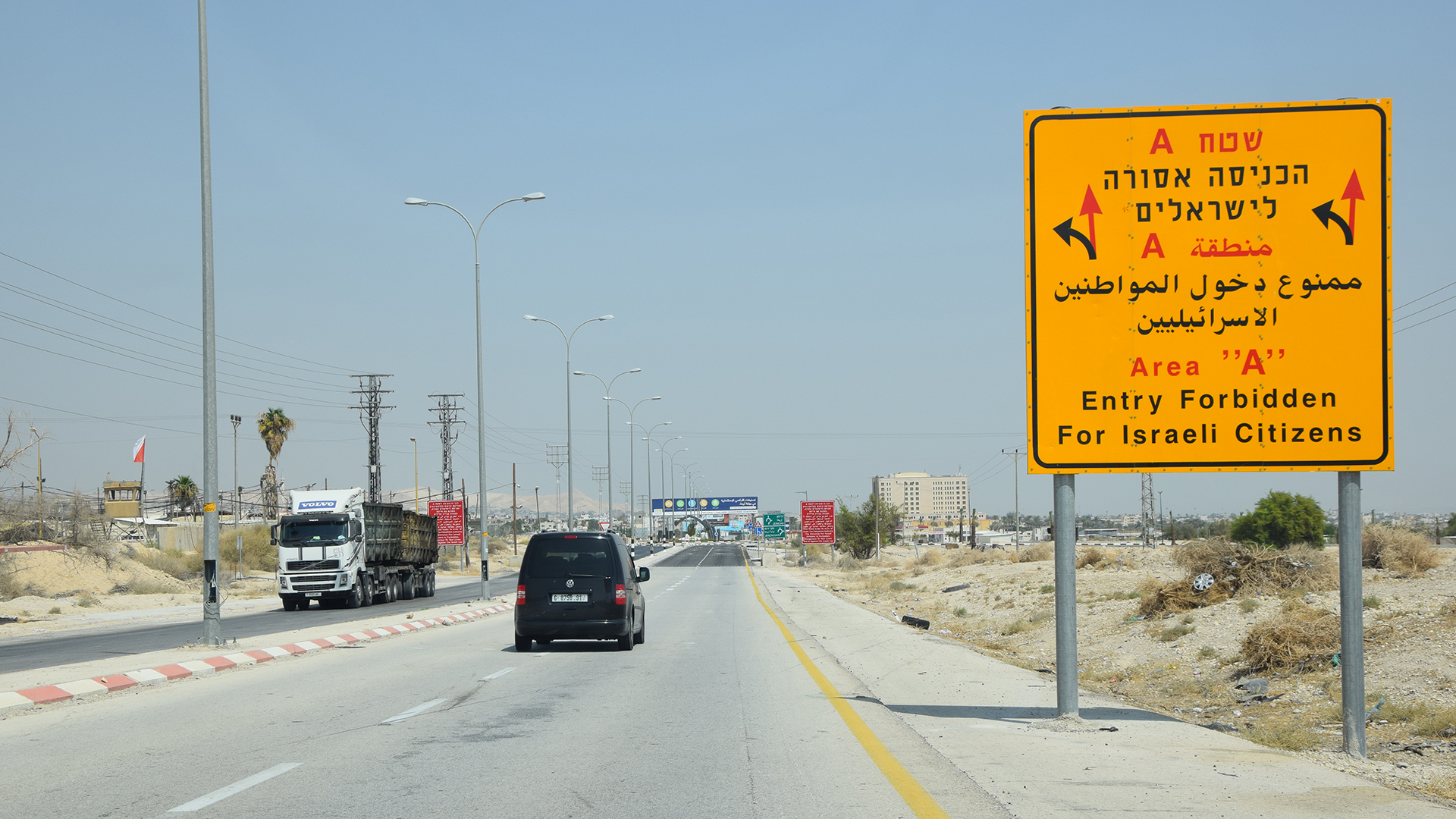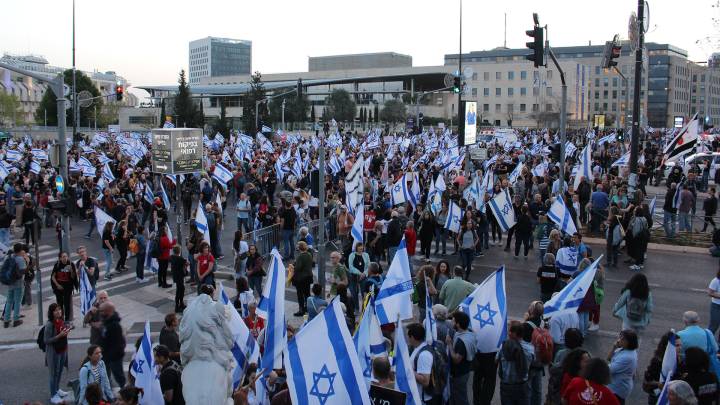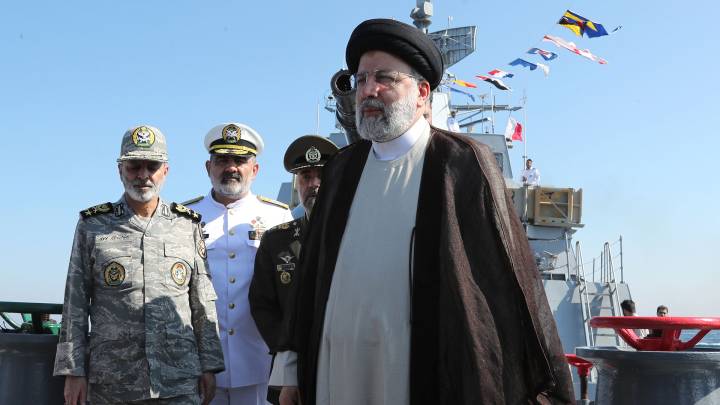Today, apartheid is not a hypothetical or future scenario. A 54-year-occupation is not temporary. The threshold has been crossed. Apartheid, and parallel persecution, is the reality for millions of Palestinians.
In April, Human Rights Watch released a 213-page report, “A Threshold Crossed,” finding that Israeli authorities are committing the crimes against humanity of apartheid and persecution. We reached this determination based on our documentation of an overarching government policy to maintain the domination by Jewish Israelis over Palestinians coupled with grave abuses committed against Palestinians living in the occupied territory, including East Jerusalem
In the months since, a growing chorus of voices, from former Israeli ambassadors to South Africa and current Knesset members to the former UN Secretary General and the French Foreign minister, have referenced apartheid in relation to Israel’s discriminatory treatment of Palestinians, in particular in the occupied territory. Yet many in Germany, including those critical of Israeli human rights abuses, remain hesitant to apply the label to Israeli conduct.
Given the legacy of the past, one can certainly understand Germany’s concern for the welfare of the Jewish people, but that should not carry over to an endorsement of abusive and discriminatory Israeli government conduct, especially in the occupied territory. As recognition grows that these crimes are being committed, the failure to recognize that reality requires burying your head deeper and deeper into the sand.
The problem begins with the Israeli government having exercised primary control for more than a half-century over the land between the Mediterranean Sea and Jordan River, encompassing Israel and the occupied territory, where two main groups of people of roughly equal size live. Throughout this area, Israeli authorities methodologically privilege one of the groups, Jewish Israelis, who are governed under the same body of laws with the same rights and privileges wherever they live. At the same time, authorities allocate different baskets of inferior rights to the other, Palestinians, systematically discriminating against them wherever they live and most severely in the occupied territory.
Our sense that our research was not capturing this underlying reality led us to write this report. Reporting on “separate, not equal” schools for Palestinians inside Israel, Palestinians being forced out of their homes in occupied East Jerusalem, the serious rights abuses stemming from the Israeli settlement enterprise in the West Bank, and the crushing closure of the Gaza Strip, we felt that our work captured important dynamics, including entrenched discrimination, in particular areas, but did not capture the full scope of Israel’s discriminatory rule over Palestinians.
The policy across the board serves the same fundamental goal: maximum land, minimum Palestinians
We set out in the report to evaluate Israel’s treatment of Palestinians across Israel and the occupied territory. As we do in the nearly 100 countries across the world we work in, we began by documenting the facts—drawing on years of our own research, case studies that compared Palestinian areas with predominantly or exclusively Jewish ones, and a review of governmental planning documents, statements by officials, and a range of other materials.
Across Israel and the occupied territory, Human Rights Watch found that Israeli authorities have pursued an intent to privilege Jewish Israelis at the expense of Palestinians. They have done so by undertaking policies aimed at mitigating what they openly describe as the “demographic threat” Palestinians pose and maximizing the land available for Jewish communities, while concentrating most Palestinian in dense enclaves. The policy takes different forms and is pursued in a particularly severe form in the occupied territory.
It includes efforts to, as leading Israelis officials have put it, “Judaize” the Negev and Galilee regions of Israel and to maintain “a solid Jewish majority,” as described in governmental planning documents, in the Jerusalem municipality, which includes the eastern part of Jerusalem, which Israel unilaterally annexed and occupies. It also encompasses efforts to “settle [Jews in] the land between the [Palestinian] minority population centers and their surroundings” in the West Bank, as set out in plans that have guided the government’s settlement policies, and to pursue “separation” between the West Bank and Gaza. The policy across the board serves the same fundamental goal: maximum land, minimum Palestinians.
Furthermore, we found that Israeli authorities have carried out grave abuses needed for the crimes of apartheid and persecution against Palestinians living in the occupied territory. They have done so through, among other policies, sweeping restrictions on movement in the form of the 14-year generalized closure of Gaza and the discriminatory permit system in the West Bank; the confiscation of more than a third of the land in the West Bank; and denial of residency rights to hundreds of thousands of Palestinians and their relatives.
We evaluated these facts against the relevant areas of international law—in this case, the established law on discrimination
Israel has imposed draconian military rule over millions of Palestinians, suspending their basic civil rights, while Jewish Israelis living in the same territory are governed under the permissive Israeli civil law. Israel imposed harsh conditions in parts of the West Bank that led to forcing thousands of Palestinians out of their homes.
We then evaluated these facts against the relevant areas of international law—in this case, the established law on discrimination—which includes a universal prohibition against apartheid. While the term was coined in relation to specific practices in South Africa, international treaties define apartheid as a universal legal term referring to a particularly severe form of discriminatory oppression.
International criminal law, including the 1973 International Convention on the Suppression and Punishment of the Crime of Apartheid and the 1998 Rome Statute to the International Criminal Court, define apartheid as a crime against humanity consisting of three primary elements: (1) an intent by one racial group to dominate another; (2) systematic oppression by the dominant group over the marginalized group; and (3) particularly grave abuses known as inhumane acts.
Racial group is understood today also to encompass treatment on the basis of descent and national or ethnic origin. International criminal law also identifies a related crime against humanity of persecution. Under the Rome Statute and customary international law, persecution consists of severe deprivation of fundamental rights of a racial, ethnic, or other group with discriminatory intent.
A ruling by a chamber of the ICC earlier this year confirmed that it has jurisdiction over war crimes and crimes against humanity
The ratification by the State of Palestine of these two treaties in recent years has strengthened the legal application of these two crimes in its territory. A ruling by a chamber of the International Criminal Court (ICC) earlier this year confirmed that it has jurisdiction over war crimes and crimes against humanity – including apartheid and persecution – committed in the Occupied Palestinian Territory since 2014.
Applying the facts to the laws, Human Rights Watch concluded that Israeli authorities are committing the crimes against humanity of apartheid and persecution. We found that the elements of the crimes come together in the occupied territory as part of a single Israeli government policy. That policy is to maintain the domination by Jewish Israelis over Palestinians across Israel and the occupied territory. It is coupled in the occupied territory with systematic oppression and inhumane acts against Palestinians living there.
Sometimes the most important thing someone who cares deeply about you can do is to share hard truths and push you to confront them. The late Israeli Prime Minister Yitzhak Rabin and leaders of Israel’s closest ally, the US, including former President Jimmy Carter and former Secretary of State John Kerry, warned of the prospect of apartheid if things did not change.
Today, apartheid is not a hypothetical or future scenario. A 54-year-occupation is not temporary. The threshold has been crossed. Apartheid, and parallel persecution, is the reality for millions of Palestinians. Recognizing and correctly diagnosing a problem is the first step to solving it and ending apartheid is vital to the future of both Palestinians and Israelis and the cause of peace. It is by extension Germany’s special relationship with Israel and history that should prompt them to recognize the reality of apartheid and persecution and bring to bear the sorts of tools needed to end these crimes against humanity.
Omar Shakir is the Israel and Palestine Director at Human Rights Watch.




